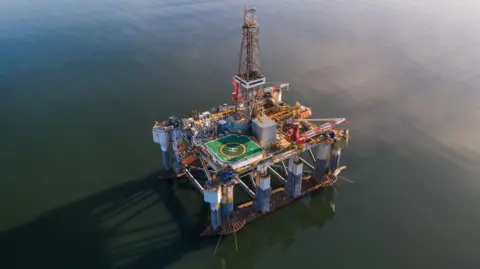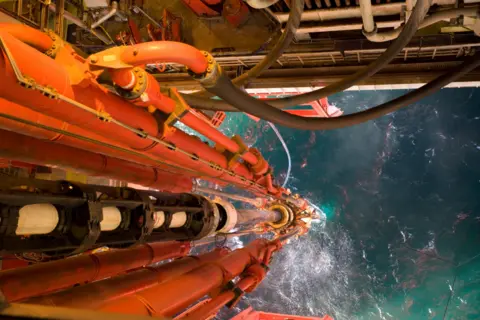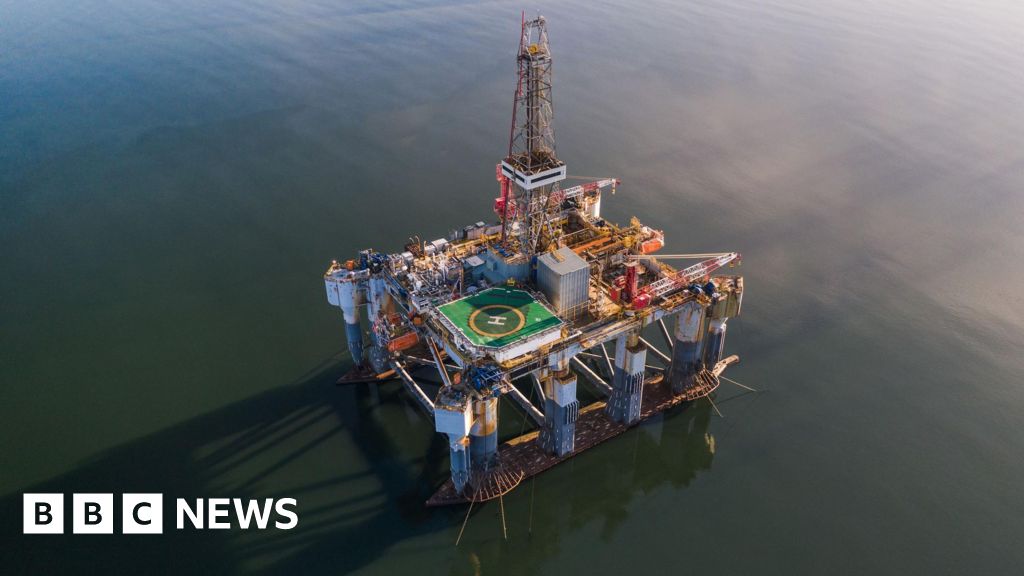 Getty Images
Getty ImagesOil and gas operators have been warned by regulators to step up decommissioning in the North Sea.
The North Sea Transition Authority (NSTA) wants companies to clean up their oil and gas legacy and said it was “getting tough” on operators not meeting their regulatory obligations.
Repeated delays to well plugging and abandonment – where wells are plugged with concrete to protect groundwater resources and prevent surface pollution and methane emission – were pushing up the estimated bill for decommissioning on the UK Continental Shelf, the NSTA said.
The facts have been laid out in the NSTA’s latest decommissioning cost and performance update.
It comes after Pauline Innes, the NSTA’s supply chain and decommissioning director, warned licensees last November to make headway on the plugging and abandonment of wells.
She warned that those failing to comply would be held to account.
‘Clean and safe’
Now the regulator has begun investigations into alleged failures to complete timely plugging and abandonment in line with approved plans.
Operators are legally required to leave the marine environment clean and safe when they stop producing, and must decommission their platforms, pipelines and wells – a complex and expensive process which requires thorough preparation and planning.
Taking too long, or deferring work, adds to the cost and can mean that platforms continue to use power and release emissions even though they are no longer producing oil and gas.
The removal of spent structures from the North Sea is expensive for the oil and gas industry, but was seen as an opportunity for a growing sector.
Operators expect to spend about £24bn on decommissioning between 2023 and 2032, up £3bn on the forecast for the same period in last year’s report.
Hundreds of wells will need to be decommissioned every year as more oil and gas fields shut down.
However, operators only achieved 70% of planned well decommissioning activities last year.
 Getty Images
Getty ImagesThe NSTA said some operators were deferring in the hope that prices would fall, but failing to award contracts reduces the supply chain’s revenues and ability to invest in capacity and resources.
Ms Innes said: “With spending forecast to peak at £2.5bn per year in the current decade, decommissioning can ensure that the UK’s world-leading supply chain is equipped to help operators clean up their oil and gas infrastructure over the next 50 years and support the carbon storage sector, which will rely on many of the same resources.
“I am concerned that this huge opportunity to safeguard highly-skilled jobs and support the transition will be wasted if operators fail to tackle their well decommissioning backlogs.”
She added: “The supply chain wants to do this work, but it is not physically tied to the UK.
“Its skills and resources are in demand in other regions, and we are starting to see companies marketing their rigs elsewhere.
“Operators need to use the supply chain, now, or risk losing it.”


